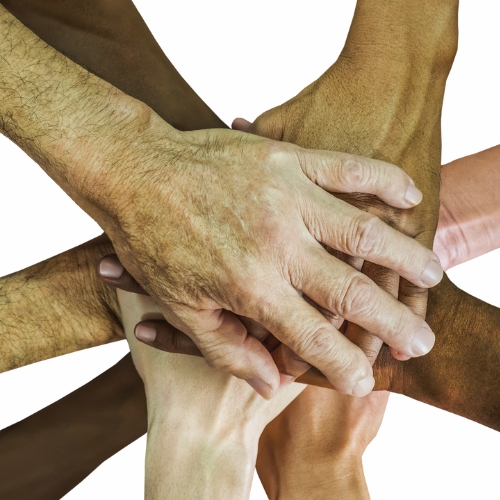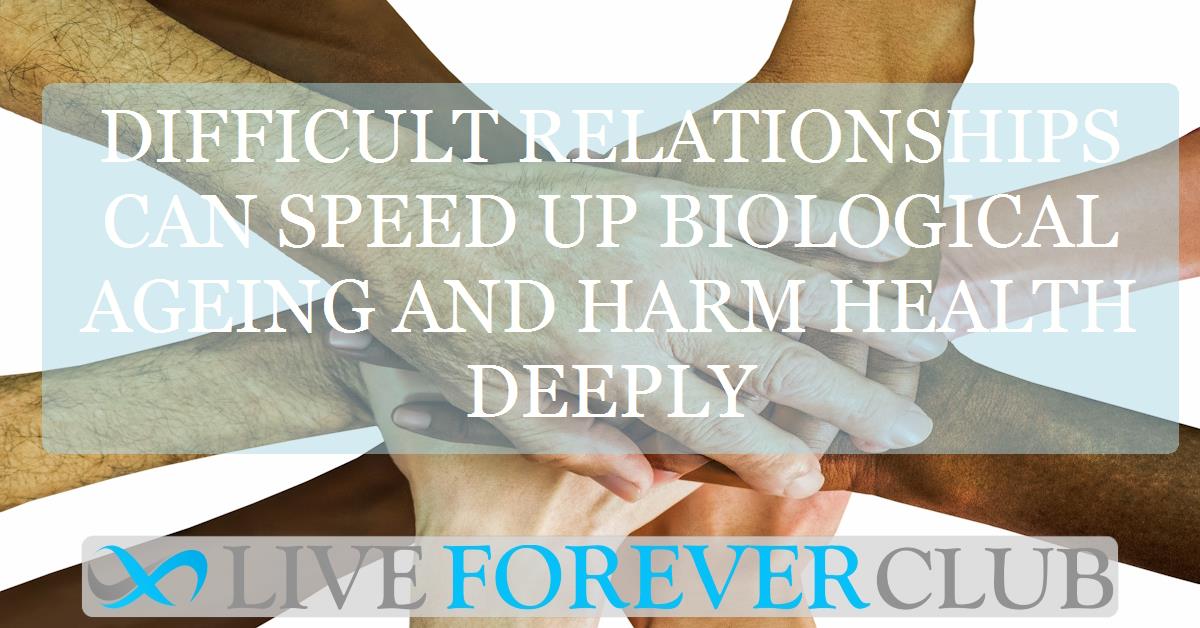We often think of ageing as a matter of time, biology, and perhaps, luck. Eat right. Sleep well. Exercise. Avoid disease. But in the background, another force may quietly be shaping how fast our cells wear down: our relationships. Not just the supportive ones. But the strained, emotionally draining, and unresolved ones. These "difficult ties" may do more than upset our mood. According to a groundbreaking study by Byungkyu Lee and colleagues, they may actually accelerate biological ageing at the molecular level.
This new research brings hard biological data to a long-suspected idea—that chronic interpersonal stress can physically age us. Drawing on detailed social network data and cutting-edge DNA methylation clocks, the study shows a startling association between the presence of difficult social relationships and markers of faster biological decline. In short, who surrounds you may affect how long—and how well—you live.
Why Social Strain Deserves Serious Biological Attention
Modern ageing research has increasingly focused on biomarkers—molecular indicators that reflect biological wear and tear better than a birth certificate can. DNA methylation clocks like GrimAge2 and DunedinPACE offer such insight. They measure how our cells deviate from expected ageing trajectories based on genetic expression and are powerful predictors of morbidity and mortality. Yet, while genetic predispositions and environmental exposures like smoking or pollution have been closely studied, social stress has often been discussed more in theory than in hard data.
“Social relationships may also function as chronic stressors, contributing to increased allostatic load through repeated stress activation,” the authors write. That’s the biological cost of adapting to challenges, especially when those challenges repeat. Social ties are usually thought of as sources of support. But this study flips that lens. It suggests that when those ties turn sour, they don’t just hurt emotionally—they leave epigenetic scars.
Difficult Ties Are More Common Than We Think
The data come from the Person-to-Person Health Interview Study (P2P) in Indiana, a state-representative health survey that includes DNA sampling and detailed social network mapping. Over 2,200 adults were assessed, with data collected between 2018 and 2021. The researchers found that difficult ties are not rare. In fact, they are a regular feature of social life.
On average, each participant listed around five people in their close social circle. About 24% of these were described as “difficult”—people who “occasionally” or “often” caused them stress, hassled them, or made life harder. Over 50% of respondents reported at least one such tie. The presence of these ties was consistent across network sizes, suggesting that even people with small social circles weren’t protected.
These findings challenge the assumption that negative social relationships are outliers. They’re not. They’re embedded in daily life. And, as the study shows, they may shape biology as powerfully as more commonly acknowledged stressors.
Epigenetic Clocks and Accelerated Ageing
The team used two powerful biomarkers to quantify ageing: GrimAge2 and DunedinPACE. GrimAge2 estimates cumulative biological age by comparing it to chronological age. DunedinPACE, on the other hand, measures the rate at which someone is biologically ageing. Together, these offer a dynamic and layered view of the body’s decline.
Regression models showed that each additional difficult tie increased DunedinPACE scores and GrimAge2 age acceleration, even after accounting for demographics like age, race, education, and marital status. When more than 50% of a person's network was composed of difficult ties, biological ageing markers surged. The association remained significant even when health behaviours like smoking, health insurance status, and COVID-19 exposure were considered.
This suggests a clear pattern. As the researchers put it: “The presence and proportion of negative ties also hold critical implications for biological ageing trajectories.” Relationships are not just background noise. They are part of the ageing machinery itself.
The Mental and Physical Health Consequences of Strained Relationships
The biological story does not end with DNA methylation. The study also examined broader health indicators and found parallel trends. Those with higher percentages of difficult ties reported worse overall health, lower physical and mental well-being, and greater psychological distress. Depression and anxiety scores were markedly higher.
Moreover, difficult ties were associated with elevated epigenetic inflammation, higher waist-to-hip ratios, and increased BMI. These changes reflect systemic stress responses—patterns consistent with chronic exposure to strain. The one metric that showed no link was height, a stable trait unaffected by social dynamics, reinforcing that the other associations were likely genuine and not statistical noise.
In the words of the study: “Difficult ties are not rare anomalies but rather common aspects of everyday social life, often comprising a sizable fraction of one’s closest connections.” That proximity may explain why their physiological effects are so deep.
Why These Findings Matter for Public Health and Ageing Research
Most public health frameworks around ageing focus on individual behaviours—diet, activity, substance use. Social integration is mentioned but often in the context of support. This research introduces a more nuanced and urgent angle. The presence of hostile or taxing relationships may undermine even the best health behaviours.
The findings are especially relevant in contexts where difficult relationships cannot be easily avoided—strained marriages, contentious caregiving situations, toxic workplaces, or communities marked by interpersonal conflict. The results suggest that these scenarios are not just stressful—they are biologically damaging.
“Frequent exposure to difficult ties may chronically activate stress-sensitive systems, fueling systemic inflammation, epigenetic dysregulation, and metabolic strain,” the authors explain. The physiological pathways are real, measurable, and cumulative. Addressing social adversity could be as important as managing blood pressure or glucose.
How Social Stress Alters the Biology of Ageing
Mechanistically, the story fits within existing frameworks of stress biology. The hypothalamic-pituitary-adrenal (HPA) axis becomes dysregulated with prolonged strain. Cortisol levels stay elevated. Immune function shifts toward chronic inflammation. Over time, these states become embedded at the epigenetic level, affecting gene expression and cellular ageing.
The study found that individuals with more difficult ties had higher epigenetic inflammation scores. They also had more diseases, greater central fat accumulation, and faster pace-of-ageing scores. This pattern held across different metrics, reinforcing the idea of a multisystem toll.
These data support the theory of “allostatic load”—the price the body pays for adapting to chronic stress. Traditionally linked to poverty, trauma, or environmental adversity, allostatic load may also stem from the everyday grind of strained personal ties.
Limitations and Cautions for Interpretation
The study is cross-sectional. That means it captures a snapshot, not a timeline. So while the associations are strong, causality is still uncertain. It’s possible that poor health could lead to more difficult relationships, not just the other way around. However, the consistency of findings across multiple measures strengthens the argument for a directional effect.
Also, not all difficult ties are equal. The impact of a hostile spouse may differ from that of a difficult coworker or sibling. Frequency, context, and personal coping mechanisms likely matter. Future research should refine these distinctions.
Lastly, the study focuses on Indiana, USA. While demographically diverse, results may vary in other cultures or age groups. Still, the general principle—that negative social experiences shape biology—is likely universal.
Conclusion: Ageing Is Social, Not Just Cellular
Ageing is not only written in DNA. It is etched into our bodies through the lives we lead and the relationships we maintain. This study shows that difficult social ties, while often overlooked, play a central role in how fast we age and how well we remain.
Rather than framing ageing purely as an outcome of genes or personal choices, this research invites us to look around. The people who surround us—their kindness, their criticism, their tension—leave molecular traces. As such, healthy ageing may require more than exercise and medicine. It may also require healing our social lives.
This is not just sociology. It is biology. And the costs of ignoring it could be steep.
The study is published in the journal medRxiv. It was led by researchers from New York University.







